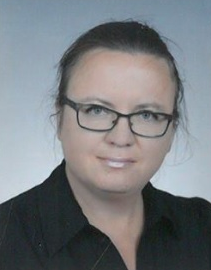
“It was a catastrophic assault on energy supplies, a singular act of sabotage – an attack on Germany” – this is how the German weekly “Der Spiegel” describes the blowing up of the three lines of the Nord Stream 1 and 2 gas pipelines. German investigative journalists, whose traces of the assassins led to Kiev, forgot to add that the construction of the aforementioned gas pipelines enabled Russia to attack Ukraine, which – if the planned blitzkrieg was successful – would most likely end in aggression against Poland as well. The question is, did the German authorities know about Russia’s planned invasion of Ukraine? What arrangements did Chancellor Angela Merkel and Vladimir Putin make before the former resigned?
“According to the findings of the investigation thus far, a commando of divers and explosives specialists chartered the Andromeda almost exactly one year ago and sailed unnoticed from Warnemünde in northern Germany across the Baltic Sea before, on September 26, 2022, blowing holes in three pipes belonging to the natural gas pipelines Nord Stream 1 and Nord Stream 2. It was a catastrophic assault on energy supplies, a singular act of sabotage – an attack on Germany” – we can read in “Der Spiegel”.
“The operation was aimed at ‘inflicting lasting damage to the functionality of the state and its facilities. In this sense, this is an attack on the internal security of the state’. That’s the legal language used by the examining magistrates at the German Federal Court of Justice in the investigation into unknown perpetrators that has been underway since then” – the authors continue.
Aside from who is actually responsible for blowing up the pipelines, there are a few things to be aware of. First of all, when the Nord Stream 1 project was launched, it deliberately bypassed Ukraine and Poland, and it was not only about the issue of possible fees for gas transit through these countries. Russia wanted to have a guaranteed liquidity in the sale of this raw material before moving with the army to the East. The then Prime Minister of Poland, Donald Tusk, saw nor danger, nor obstacles and the Russian-German investment entered the implementation phase.
Nord Stream was supposed to play another role, namely to serve the Russian infiltration of the European Union, which the Germans must have been aware of. Also in the opinion of Kees Klompenhouwer, a Dutch diplomat and former intelligence chief, Nord Stream was used to conduct infiltration activities in the European Union. “Nord Stream 1 was absolutely a Russian infiltration project” – he told the NRC in an interview. This means that Germany and Russia had much more in common than just economic cooperation.
The Modern Molotov-Ribbentrop Pact
Some Polish politicians have rightly noticed that Nord Stream 1 and 2 are nothing more than the modern Molotov-Ribbentrop Pact. Although we do not know exactly what the details of the arrangements between the German and Russian sides were, at least some of them can be proved by several facts. Well, the British newspaper “The Telegraph” reported in April 2022, after Russia’s aggression against Ukraine, that France and Germany, despite the embargo, armed Russia with military equipment worth EUR 273 million. The authorities in Berlin then excused themselves by claiming that the goods were only sold after the Kremlin had guaranteed that they were intended for civilian and not military use [sic!]. Germany was already selling military equipment to Russia when it was known that Russian troops were preparing for an invasion. Moreover, when Ukraine asked Germany for support after Russia started its aggression, at first it did not receive it at all (the authorities in Berlin were clearly waiting for Russia to take over Ukraine), then it received old helmets, and when it begged for any military equipment, it was a condition for its handing over was that it would not be used in Russia. “It is important to us that the weapons we supply and which Ukraine can defend itself are not used for attacks on Russian territory” – German Chancellor Olaf Scholz said during a meeting with residents of the German city of Bendorf in the state of Rhineland-Palatinate in May this year.
Another issue is the haste with which Angela Merkel – even before resigning from the office of German Chancellor – negotiated with the United States the completion of the Nord Stream 2 gas pipeline, which Germany would not need in the economic area, as there was a gas pipeline transporting blue fuel from Russia through Ukraine. This haste would only be understandable if there were secret arrangements between Russia and Germany as to the division of influence or lands in Central Europe.
There is also the problem of the Minsk agreement of 2014, according to which Germany recognized Russian authority in Crimea and territories annexed by Russia and, together with France, forced it on Ukraine. It was clearly acting for the benefit of Russia and common interests with it.
All these facts prove that the German-Russian alliance exists, despite the bestial crimes committed in Ukraine. Anyway, the spirit of this cooperation has been hovering over Europe since the days of Rapallo, and its first fruit was World War II. This means that Europe has a really serious problem with Germany, although it may not be fully aware of it. It would be good if this issue was discussed in the European Parliament, and the German authorities answered the questions that are increasing. Or maybe this German attack on Poland via EU institutions is Berlin’s way of diverting the attention of European public opinion from the above-mentioned issues?
Anna Wiejak
